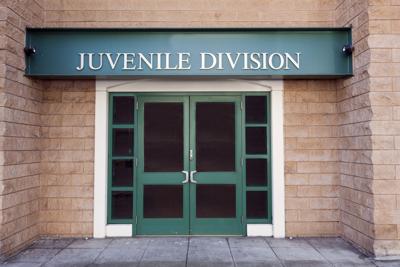This opinion post was inspired by a student who, after reading about my experiences in the article, The Secrets of Data Collecting Inside California’s Youth Prison, shared his journey with the California Department of Corrections and Rehabilitation (CDCR). He was hired as a correctional counselor, but upon onboarding, was immediately promoted to guard. Within three months, he resigned. No amount of money or pension was worth his sanity.
My experience teaching for CDCR’s Division of Juvenile Justice (DJJ) was similarly disillusioning. During the initial interview, I was explicitly told, "We are looking for someone who cares, can connect with this population, and can implement innovative teaching practices to make the curriculum relevant for our student population." As I listened to the interviewers describe their ideal candidate, I thought to myself, "SIGN ME UP!"
Within weeks of being onboarded, reality set in. During fourth period, we heard a loud and constant bang and scuffling in the adjacent classroom. Unable to see what was happening, my mind raced with worst-case scenarios, imagining someone’s head being stomped on or smashed against the wall. My students, all too familiar with the situation, fell silent. Some nervously glanced over their shoulders, checking if the violence would spill into our room. I walked over to the window and looked toward the guard shack, expecting a group of guards to rush the classroom. But no one was running towards the classroom.
At that moment, tens of thoughts crossed my mind: Was the teacher unconscious? Why wasn’t anyone responding? Finally, I pressed the alarm on my waistband, terrified I might be punished for a false alarm, or worse, for not acting quickly enough. Within seconds, guards, weapons in hand, sprinted toward my classroom. The pounding in the adjacent room grew louder as did the pounding in my chest. When they arrived, I opened the door, pointing to the classroom next door, trying to explain, but they couldn’t hear me. They were programmed to respond to the location of the alarm. Only after seeing that my classroom was calm did they register my words: “It’s next door.”
The following day, students exclaimed, “Why did you press your alarm? He was only going to let it go for a minute.”
Days later, a colleague approached me and said, “He’s really a nice guy. He told me you pressed your alarm when you heard the scuffle in his classroom and now thinks that you don’t like him.”
I shared both conversations with the assistant principal (AP), who responded, “I wish he would stop doing that. With the list of complaints and accusations against him, he is lucky to be here.”
During my four-year tenure with CDCR, I saw a common theme: most employees overwhelmingly protected the system in exchange for a pension. This included guards, teachers, nurses, psychologists, counselors, administrators and office staff. They compromised their sanity, their relationships with loved ones—all for a good pension.
It didn’t take long to realize that all professional development centered around “SAFETY and SECURITY,” which was code for “protect the system; there’s a pension at the end of the tunnel.” "Safety and security" was the mantra that opened and closed every meeting—never "rehabilitation," never "quality programming."
On a completely different occasion, not long after witnessing my first riot in the school area, I was confronted by two teachers, a school psychologist and a teaching assistant at the end of the day. “Why did you say that at the meeting? We’re supposed to stand together. Why are you making our coworkers look bad?” they exclaimed. At the debrief following the riot—where security explains the who, what, why, when and where—I pointed out, as a new faculty member with fresh eyes, that some staff had left campus while the student-inmates were still lying zip-tied on the ground. Some were burning from pepper spray, while others were simply relieved the violence hadn’t escalated further. I vividly remember seeing a few employees, eager to leave, step over the bodies of those students without a second thought. Their eagerness to leave was indicative of the school culture.
Everyone talked about these colleagues behind closed doors, but no one addressed the elephant in the room: How could education work with security to prevent or at least reduce the violence? That was the true question of the debrief, but no one wanted to face it. Believing that administrators truly wanted to identify the root of the problem as well as explore solutions, I naively shared my observations. The visit by my coworkers was evidence that teachers are also expected to guard their pensions at all cost and not speak against anything that can jeopardize it.
But behind closed doors, the talk was different. People frequently whispered, “We’d be shut down if the public knew what goes on in here.”
One day, after a handcuffed youth had been sprayed with chemical agents during a fight, I observed the psychologist watch as the youth struggled to breathe. She nodded her head in disbelief as the youth gasped for air while he squirmed on his feet then dropped to a knee as the chemicals burned his eyes, skin, throat, nose and every living cell in his being. I walked over to the psychologist and asked, “What keeps you here?” She replied, “In two years, my student loans will be forgiven. Then I’ll quit.” Until then, she too would guard the system.
I published my first Op-Ed about DJJ weeks after that chemical agent incident. I went on to publish two more articles at the expense of being threatened, I was not guarding the pension well.
In the spirit of broadening this discussion, we must look at the power brokers who guard the pension behind the scenes. In a quid pro quo fashion, politicians guard the pension in exchange for endorsements, which equates to votes. Currently, the Los Angeles County Juvenile Hall system and the L.A. County Board of Supervisors are at a crossroads. The board can choose to completely overhaul the failed juvenile incarceration system or not. As of late, the supervisors are sitting on approximately $80 million intended for rehabilitation. This comes at a time when the culture inside L.A. County’s juvenile detention facilities mirrors a Wild Wild West work environment – high levels of absenteeism, several youth overdosing, a fatality, escapes, lawsuit settlements and the list goes on.
Essentially, withholding money for quality programming is like withholding food for the soul. Just as food nourishes the stomach, quality programming can nourish the soul. Nourishment is nourishment. But as the Board of Supervisors debates whether to fund quality programs or maintain the status quo by giving Probation a blank check, they too have been promoted to guards. After all, guards are also assigned desk duty.











(0) comments
Welcome to the discussion.
Log In
Keep it Clean. Please avoid obscene, vulgar, lewd, racist or sexually-oriented language.
PLEASE TURN OFF YOUR CAPS LOCK.
Don't Threaten. Threats of harming another person will not be tolerated.
Be Truthful. Don't knowingly lie about anyone or anything.
Be Nice. No racism, sexism or any sort of -ism that is degrading to another person.
Be Proactive. Use the 'Report' link on each comment to let us know of abusive posts.
Share with Us. We'd love to hear eyewitness accounts, the history behind an article.